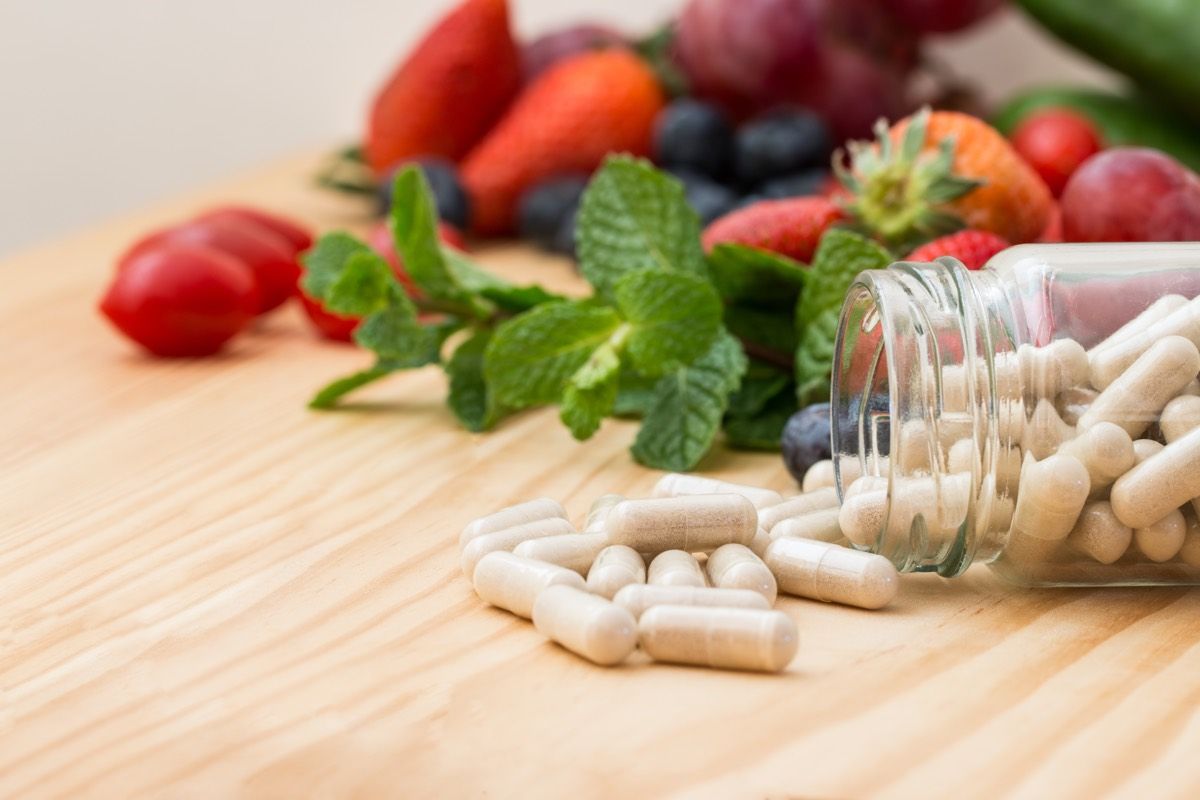Exploring natural compounds has become increasingly popular in the search for better health.
One such compound, Spermidine Supplement, is generating excitement due to its potential benefits.
Found naturally in foods like soybeans and mushrooms, spermidine is being studied for its ability to support overall well-being and vitality. Let’s discover more here!
1. The Origins of Spermidine
Spermidine is a polyamine compound, meaning it’s made up of multiple amino acids. It’s produced naturally within our cells and involves various essential processes, such as cell growth and repair. Think of it like a repairer for your body’s cells, keeping them in good working order.
2. Health Benefits Unveiled
Studies suggest that spermidine may offer a range of health benefits. For example, animal research has shown that supplementation with spermidine can improve heart health and even extend lifespan. It’s like giving your body an extra boost to keep running smoothly for longer.
3. Mechanisms of Action
So, how does spermidine work its magic? One key mechanism is through a process called autophagy, which is like a cellular cleaning service.
Autophagy helps remove damaged or unwanted components from cells, allowing them to function more efficiently.
Spermidine seems to stimulate this process, promoting cellular rejuvenation and overall health.
4. Sources of Spermidine
While spermidine is naturally present in certain foods, it can also be a supplement for those who may not get enough through their diet.
Foods like soybeans, mushrooms, and aged cheese are good sources of spermidine.
However, supplements offer a convenient way to ensure you get enough of this beneficial compound, especially if your diet lacks these foods.
5. Future Directions and Challenges
As scientists continue to study spermidine, there’s much excitement about its potential applications for health and longevity.
However, challenges remain, such as determining the optimal dosage and understanding any potential side effects.
Research in this area is ongoing, hoping to unlock even more of spermidine’s secrets in the future.
| Food Source | Spermidine Content (mg/100g) |
|---|---|
| Soybeans | 9.5 |
| Mushrooms | 4.9 |
| Aged Cheese | 1.5 |
| Wheat Germ | 0.4 |
| Green Peas | 0.3 |
This table provides information on the spermidine content of various food sources per 100 grams.
Incorporating these spermidine-rich foods into your diet can help boost your intake of this beneficial compound.
How to Choose a Spermidine Supplement
1. Purity and Quality Assurance
When selecting a spermidine supplement, purity is paramount. Look for products that undergo rigorous testing and certification to ensure they are free from contaminants and impurities.
Quality assurance measures, such as third-party testing and adherence to Good Manufacturing Practices (GMP), provide reassurance of the supplement’s purity and potency.
Opting for reputable brands with a record of transparency and quality can help ensure you get a safe and effective product.
2. Bioavailability and Formulation
Consider the supplement’s bioavailability, which refers to how easily the body can absorb and utilize its active ingredients.
Choose supplements formulated for enhanced bioavailability, such as those using advanced delivery systems like liposomal encapsulation or micronization.
These technologies can improve the absorption of spermidine, maximizing its potential health benefits.
Additionally, opt for supplements containing other synergistic ingredients to enhance absorption and efficacy.
3. Dosage and Transparency
The correct dosage is crucial for achieving optimal results without risking adverse effects.
Look for supplements that provide clear dosage instructions based on scientific research and clinical studies.
Transparency regarding the source and concentration of spermidine in the supplement is also essential for informed decision-making.
Be wary of products with vague or exaggerated claims and prioritize those backed by evidence-based dosing recommendations.
Consulting with a healthcare professional can also guide you on the appropriate dosage for your needs.
1. How does spermidine supplementation affect cellular ageing?
Studies have shown that spermidine can help rejuvenate ageing cells by promoting autophagy, which removes damaged components and allows cells to function more efficiently.
2. Can spermidine supplementation benefit cognitive health?
Emerging research suggests that spermidine may have neuroprotective effects, potentially reducing the risk of cognitive decline and improving brain function as we age.
3. What are the implications of spermidine supplementation for metabolic health?
Preliminary studies indicate that spermidine may regulate metabolism, which could affect conditions like obesity and diabetes. More research is needed to understand these effects fully.
4. Are there any potential side effects or contraindications associated with spermidine supplementation?
While spermidine supplements are generally considered safe for most people, some individuals may experience mild side effects such as gastrointestinal discomfort.
It’s always best to consult a healthcare professional before starting any new supplement regimen.
5. How can individuals incorporate spermidine-rich foods into their diet effectively?
Adding foods like soybeans, mushrooms, and aged cheese to your diet is a simple way to increase your spermidine intake.
Including various foods in your meals can help ensure you get enough of this vital compound for optimal health.
Closing Thoughts
Spermidine shows excellent promise as a natural compound for promoting health and vitality.
Whether through dietary changes or supplementation, incorporating spermidine into your wellness routine may offer numerous benefits for overall well-being.
As research continues to uncover more about this fascinating compound, we can look forward to even more insights into its potential for enhancing longevity and quality of life. Stay curious, stay healthy!
